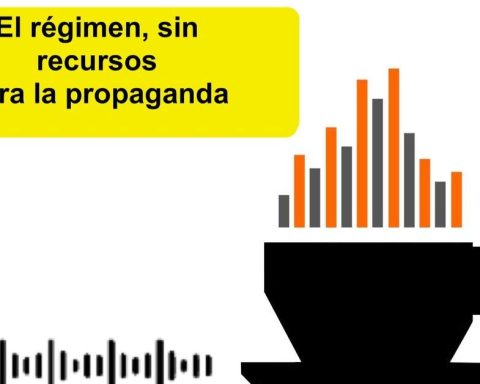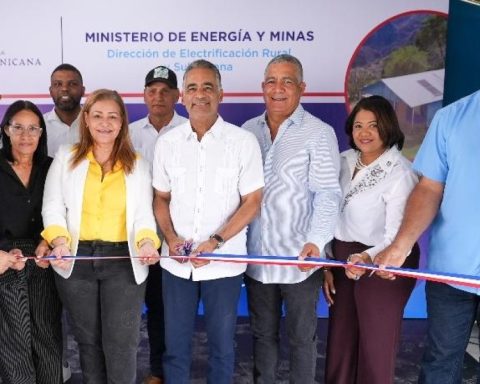After the controversy caused by health reform, This Monday, February 13, lights are seen in front of what the bill is. The National Government, headed by Gustavo Petro, finally presented the articles together with the head of the portfolio, Carolina Corcho, before the Congress of the Republic.
(Read: ‘There will be no clients, there will be people’: Petro on health reform).
The bill focused on the axis of primary health care centersa, which will be the axis of the new health care model. The idea, according to what the Minister said, is to have primary health care centers that spread throughout the country, of a public and mixed nature, with extramural teams. This is what the portfolio calls preventive health.
Additionally, it arises the recovery of state management of public resourcesthe dignity of workers and workers and the regionalization of care, access and coverage of the system throughout the national territory.
According to the article “It is based on social health insurance as the guarantee provided by the State for comprehensive health care for the entire population, ordering sources of financing, pooling financial resources from the health system in solidarity, with criteria of equity, with a system of financial and health risk management, directed and controlled by the State”.
However, it is noteworthy that the reform dedicates an entire chapter to the transition and evolution of the health system. Regarding article 145, prior consultation with the traditional authorities of indigenous communities is defined for the reorganization of the Social Security System in Health, where health services and organization in their territories will be regulated.
(Keep reading: The pillars of the health reform explained by Minister Corcho).
Also, it dedicates a paragraph (article 147) to private companies whose corporate purpose is the sale of prepaid or voluntary health planswhich may continue to operate and market their services under the rules and standards of operation, financing and provision of services that govern them.
In the same way, the portfolio on different occasions has mentioned the new health care model as an objective, according to the bill, which proposes thea Comprehensive Resolutive Primary Health Care (Apirs)which will be developed by the State Health Institutions (ISE), private and mixed.
Among what stands out in this section, of article 93 of the reform, is the community participation of the social conditions that affect the quality of life and health, as well as existing inequities.
Likewise, the formulation with community participation of policies and plans aimed at towards the reduction of these inequalities. In terms of services, outpatient, pharmaceutical, and home care, follow-up of referred patients, and intersectoral coordination stand out.
(See: This was the filing of the health reform in Congress).
health reform
Sergio Acero Yate / Time
The resources of the Address:
According to the articles, the distribution of resources in the accounts managed by the Adres are lon account of comprehensive primary health care, of which its main sources are the General System of Participations, with 90% of the resources for health destined for municipalities and districts, among others. These resources will be executed by direct monthly transfer from the ADRES to public, private or mixed health service providers.
On the other hand, the account is managed Strengthening the Public Network for Equity, which is financed from accounts assigned to territorial entities and others with a specific destination for health. Among its uses are the budgetary contributions for the operation of the State Health Institutions according to criteria of guarantee of the provision of services, population dispersion, epidemiological profile, resource compensation needs for low billing.
Another aspect to highlight in the articles is Territorial Health Funds, that will be administered by the Territorial Health Directorates, which will be constituted by the transfers from the Single Health Fund, the income of specific destination for health referred to in Law 1393, the resources of the General System of Participations (SGP) and the own resources of the territories for the financing of health.
(In addition: Fifteen former Energy Ministers alert risks of intervening the Creg).
For his part, “the resources of the General System in Participations in Health will be allocated to primary health care and public health programs, except the resources allocated to departments”, the document says.
In terms of contracting and authorization of payment of services, the articles include that the Manager of the Regional Fund for Social Security in Health, will be an official of the ADRES, “will contract the health services and other requirements for the fulfillment of his work in the At the regional level, it will authorize the payment of medium and high complexity services provided by hospital and outpatient institutions, public, private or mixed, that are integrated into the service network of the territory, at the unique and obligatory rates for the provision of services that set by the National Government for the Health System”.
In terms of Health Promotion Entities (EPS), the document explains that those that comply with the technical provisions established by law and the inspection, surveillance and control regulations pThey may exercise the creation and administration of Primary Health Care Centers of the assigned territories, after the territorialization provided by law, as they may manage the referral and counter-referral systems of the people linked to their Primary Health Care Centers.
Additionally, they will have to carry out or execute the contracted audits required by the Health System.
Another of the issues to be dealt with by the health portfolio is the labor regime of health workers, in this matter in chapter 15, article 127, it is ensured that this category will be formed according to the requirements of quantity, profiles, organization and to the characteristics of the Health System, constituting a special regime.
(Keep reading: Petro asked Superservicios to review the sale of Triple A shares).
According to the reform, “in the framework of the provisions of Law 1751 in articles 17 and 18, the policy must include the general criteria to improve fair and decent working conditions, with stability and facilities to increase their knowledge, in accordance with institutional needs, guarantee continuous education and updating to all health personnel and especially those who have to travel to places located outside the capital cities”.
BRIEFCASE

















